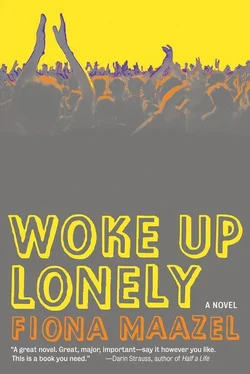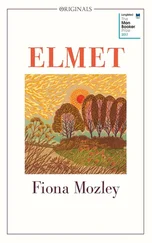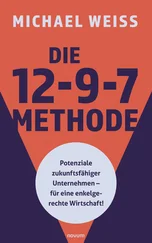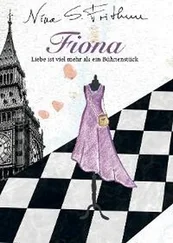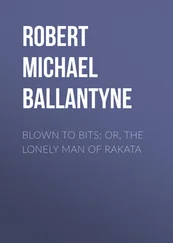Do you have my blond hair? Is it thick like your mother’s, does it lift and dip as you cruise the playground, do you have knock-knees and braces, are your eyes still bear brown?
For your last birthday, I sent you an unlimited gift certificate to the American Girl store in New York. It was returned. I sent you guest passes to the Oscars and afterparties and guaranteed a private interview with a teen heartthrob of your choosing. These were repulsed. I’ve sent letters begging for news. A photo. Something you made at school. And every day, every year: nothing.
What do you think this does to a man? I’ll tell you. It sends a man to North Korea.
And so, at last, the story of why I am in this mess. The story of Pyongyang, City of the Dead.
To be fair, and for the record, it was the North Koreans who approached me. Under the aegis of wanting an improved image in the West. They knew the Helix had reach. Daily contributions were up; sales of the Helix Monthly were up. RYLS attendance had gotten so huge, we outsold the Spanish pop phenomenon Enrique Iglesias. In the meantime, Pyongyang’s rapport with the United States was foundering badly. The U.S., which had promised to help them build two cold-water reactors, had called them a bad name. Others in receipt of the bad name were being bombed comprehensively. Pyongyang, nonplussed and ever sensitive to a patrimony of occupation, copped to having atomic weapons or, at the very least, the resources to make them, so back off. Another impasse that had already isolated the country to the point of starvation. Two million people dead of famine, which they blamed on cataclysmic phenomena in the soil. But which they also blamed on the American tyranny pledged to kill them all. Enter the Helix. They needed our help.
We were a good fit. For one, I sympathized with their anti-Americanism. I did. After all, what hubris on our part to have regarded Korea as war booty and divided it with the Soviets. The sundered families and affronted national esteem within five minutes of freedom from the Japanese. Kim Il-sung’s aggression, though unwarranted, punished with a million dead. It was no small wonder they hated us.
Two: North Korea is the last black spot on the map. Solipsism, repression, and homogeneity are its standout qualities. So imagine what I could do for them. Improve their image? Fine. Use the Helix to forge ties — one person at a time — with the most isolated people on earth? Nobel Prize — winning. And in the meantime, because I knew to hedge my bets, I’d try to finagle contact with the American defectors Esme had been trying to recruit so many years before. I wanted to make her a hero. I wanted to make us both heroes so that she’d see in me something to love.
So I went to the North, to meet Kim Jong-il. To set up some Helix events, and to propose bringing many of my followers to participate. The plan wasn’t just to thaw relations but to change the way we thought about each other. If this could be accomplished in North Korea, it could be accomplished anywhere.
I decided to take Isolde. She’d been a prostitute when we met, and so I thought her vocation would provide me with some comfort. Putage may not be unique to the free world, but it’s still totem for the erotic and transactive possibilities therein, and I wanted these reminders of home to protect me in this forbidding and scary place.
We flew from Beijing on Air Koryo, one of only six flights making the descent into North Korea a week. I was sure the plane wouldn’t make it. As soon as we sat down, the anachronistic hairstylings of the crew seemed to suggest other, more dire anachronisms — a gunpowder engine, for instance. We were the only Caucasians onboard, though the cabin was half-empty. Who wanted to visit North Korea? Who was permitted to visit North Korea? The occasion for the Japanese tourists we’d come with was the Mass Games, which meant the DPRK had relaxed its antipathy to foreigners to help internationalize the harmony of the socialist state manifest in eighty thousand gymnasts tossing a ball at the same time. The Japanese were excited. Isolde was excited. She had never seen an Asian or heard a foreign tongue, so consider the disarrangement of mind caused by so many doors flung open at once.
Our seats were upholstered in a tan fabric textured like denim. Our reading material comprised fictions sponsored by the North Korean government to the effect that the United States endorsed Satanism. We were a fount of colonialist doctrine currently or at one time expressed in the following: Mexico, China, Greece, the Philippines, Albania, Iran, Guatemala, Haiti, Panama, Vietnam, Cambodia, Zaire, Brazil, Cuba, Chile, Fiji, Turkey, Iceland, Taiwan, Lebanon, Nicaragua, Grenada, Haiti, Afghanistan. Where were the American imperialists most in evidence today? Iraq. What was the country most likely to stampede the third world on the flimsiest of pretexts? America.
I was hard pressed to argue with this agitprop, supplied in full by our stewardess. I felt bad for her. She had been chosen among a handful to consort with the alien ideology. Her ill will was patent.
The Pyongyang airport looks, from the tarmac, like a prison block. It is a trellis of windows that together are lintel for a billboard of Kim Il-sung. We deplaned and passed through customs without fanfare. We’d had our marching orders. No cell phones, no laptops, no literature in which North Korea makes an appearance, no American flags or icons of patriotic zeal. Then we were relieved of our passports, which agreed with me but which Isolde didn’t like. I’d forgotten to tell her that for the duration of our stay in the Forbidden City, we were captive to the Forbidden City. She wore stilettos that jabbed the floor until she snapped a heel in dudgeon. I promised to buy her flats. She hobbled to the bus.
We dined in our hotel, which was marooned on an island in the Taedong River, and were sent to our room at 8 p.m. I had the sense not to ask our minders when we might dispense with the charade that I was but another tourist, and spent the evening wandering about the hotel. As with most places in Pyongyang, it was large-scale and finessed to screen the essential poverty of the state. There was a bowling alley with lights and power that were turned on by request and shut down the instant you were done. Likewise with the casino, movie theater, nightclub, and bar. You might be looking at the largest movie screen in Asia, but with no electricity to run the projector.
That night the theater billed cinema verité, part one of the 1978 epic Nameless Heroes, which starred the four American soldiers who had defected. The movie is probably twenty-five hours long. Isolde and I got through twenty-five minutes. The theater was deserted, just us and a hotel guide who cautioned that to talk during the film was to discredit its organizing principle, which was the eminence of Kim Jong-il.
I told Isolde to keep quiet and that we would not stay long. She asked if there were any other movies playing, or maybe we could just watch TV? She wondered if Friends was syndicated abroad. I took her hand. She had frosted her lips pink and wore her hair, a sunny blond, fanned about her shoulders. Her Southern accent was not pronounced but was still noticeable — a swallowing of medial consonants and a tendency to diphthong her words so that they went on and on. Fire was ray-yed. Her favorite band was the Grateful Day-ed. You know what’s not any fu-uhn? This movie lauding Kim Il-suh-ung.
Our guard told us to shut up. But Isolde just couldn’t. She kept asking why the Americans in this film were killing everyone without cause and then remembering that killing people without cause is often just what we Americans do. And it wasn’t like the North Koreans were ever going to forget that. God knows why I had thought otherwise. Where I saw in Pyongyang a desire to improve relations with the West and put the hatred aside, they saw in me distaste for my government and a stake in its downfall. Their thinking: What would happen if North Korea backed a heterodoxy opposed to the U.S. imperialist wolves and baby killers? A chance to destabilize the U.S. from within. Perhaps to lodge a spy or two among us. To get a foothold where before they had had none. How naive I am? Very, it seems.
Читать дальше
